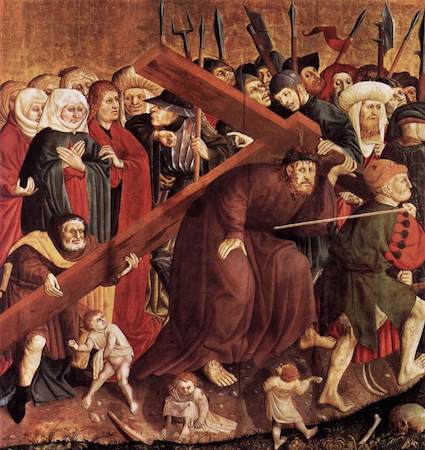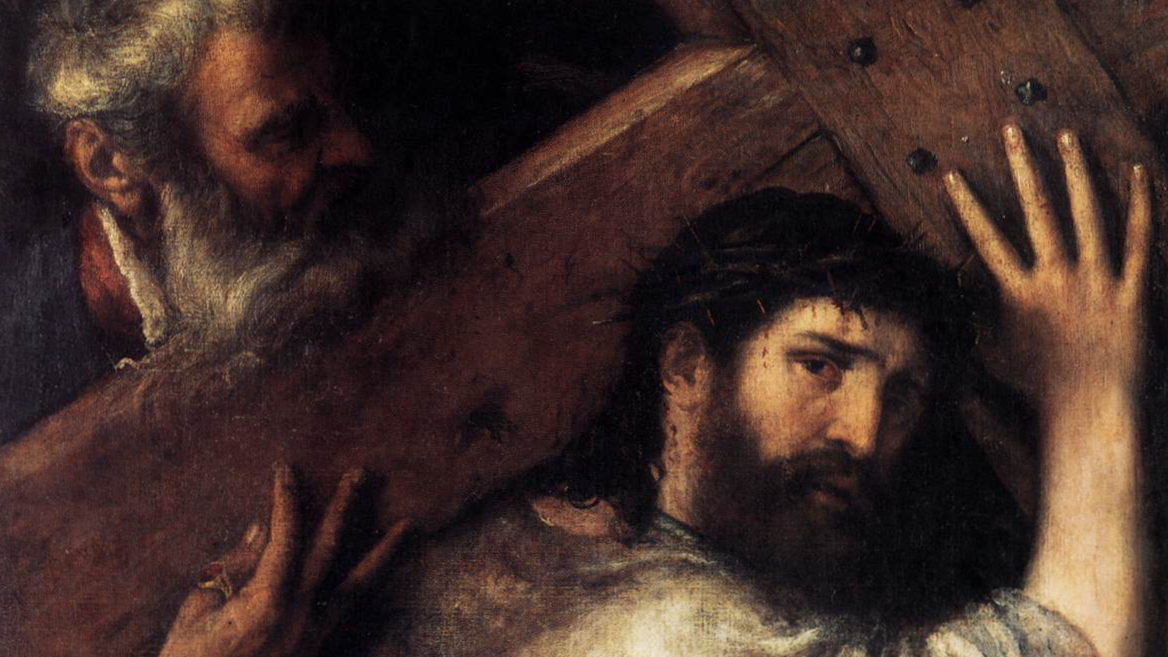Once there was a young woman who, upon leaving home, ignored her religious upbringing and lived a wild and immoral life—until she was diagnosed with a fatal disease. Far from home, with no one else to turn to, she spent her last few weeks in a hospital run by Catholic nuns, and she was constantly crying. When one of the sisters asked her why, she said, “I know I’m going to die soon and that I’ll have to give the Lord an accounting for how I’ve lived, but when I look back at my life, I see that I’ve wasted it. When I face God I’m going to have nothing to offer.” At this, the sister took off the crucifix she wore around her neck, pressed it into the hands of the young woman, and said, “Keep this—as long as you cling to the cross of Jesus, you’re never empty-handed” (Tonne, Stories for Sermons, Vol. 15, #153). Through the cross, the young woman’s wasted life became a victorious one. The cross gives meaning to our lives, as well; it reminds us that, no matter how we suffer, no matter how often we fail, no matter how difficult life seems to be, if we accept the cross of Christ we will also share His victory. We call this feast the Triumph of the Cross—because Jesus’ cross is the sign of final victory over sin and death.
If we were to write the story of salvation, we’d probably have Christ come in overwhelming majesty and power, with all the just people on earth falling to their knees in loving gratitude and awe, and all the wicked trembling in fear and shame. In fact, this will be the scene at the end of time, but for Jesus’ first coming to earth, God chose a very different plan. Christ was born humbly, almost in secret; He revealed Himself only gradually, and only to those with faith; He gave people the freedom to accept Him—or to reject Him. The world as a whole did reject Him, putting Him to death—yet this is what made His victory possible.
Crucifixion was not only an extremely painful way to die; it was also the most humiliating way, one reserved for slaves, the worst criminals, and the outcasts of society. Nevertheless, as St. Paul says, Jesus accepted death on a cross, and “because of this, God highly exalted Him and bestowed on Him the Name which is above every other name. . . .” The cross thus became, not a symbol of shame, but a sign of salvation and of victory over sin and death. In the Gospel Jesus foretold this to Nicodemus: by being lifted up on the cross, He would become the Savior of all who looked on Him with faith, just as those who gazed upon the bronze serpent in the desert were healed of their affliction. As Jesus explained, God didn’t sent His Son to condemn the world, but to save it—which means that instead of sharing in the emptiness and misery of sin, we have the chance to share in God’s victory through the cross of Christ.
When we cling to the cross, as did the dying young woman, our lives are not wasted or empty; they’re victorious, in spite of everything we may have done or failed to do, and in spite of everything we might have to endure. The cross of Jesus has the power to give new meaning to suffering, changing it from defeat into triumph. This is true for all those who’ve been martyred for their faith in Jesus throughout history, including the many largely unsung Christian martyrs in different areas of the world in just the last few years. It’s true for the thousands or even millions of Christians today who suffer persecution, imprisonment, or discrimination. It’s also true for the people in our community each day who struggle with and endure such things as blindness, loneliness, physical handicaps, grief and mourning, serious illness, worries, and all the other struggles of life. Without the cross, these things are tragic and pointless; with the cross, these sufferings can lead to a share in the victory of Christ.
What are the crosses you bear? One of mine is that there’s never enough time to do all the things I want to do or should do in terms of meeting the spiritual needs of the parish and local community and in fulfilling my duties as pastor, and knowing that my own human weakness interferes with my duty of sharing Jesus with others. Yet, in spite of my failings and sinfulness, God works through me, giving me words to speak and love to share; He’s able to use my weakness to show His greatness. What cross do you bear: grief over the death of a loved one? If so, you know how Jesus felt at the death of His foster father Joseph, His cousin John the Baptist, and His friend Lazarus. Jesus understands; if you offer Him your grief, He will console you and one day reunite you with your loved one. Is your cross an illness, physical handicap, or some other form of suffering? If so, you can understand something of the agony Jesus felt during His Passion, when He hung upon the cross. Offer your suffering to Him, and just as the cross became a victory for Him, so shall it be for you. Is your cross loneliness or a feeling of being misunderstood or rejected? If so, you know what Jesus felt when the world rejected Him and when those who followed Him ran away, leaving Him alone. Offer this painful experience to Him and surrender yourself to God’s will as He did, and you too will find peace and consolation.
For Jesus, victory could only be achieved through suffering; to one extent or another, this is also true for us. Through common sense and everyday experience and observation, we already know—or are discovering—that life involves suffering, no matter what we do; faith, however, tells us that this suffering doesn’t have to be a defeat. If we cling to the cross, everything can become worthwhile. In the eyes of the world, the cross is a sign of shame and defeat; for those who see with the eyes of faith, it’s a sign of triumph—a triumph Jesus wishes to share with each one of us.








